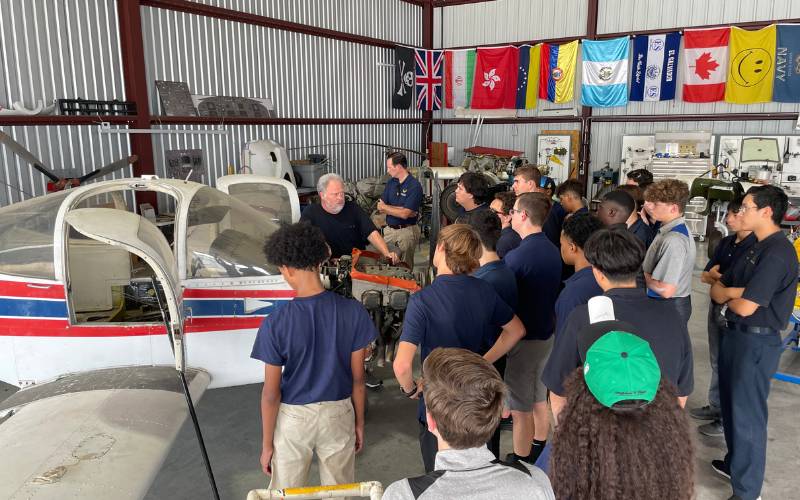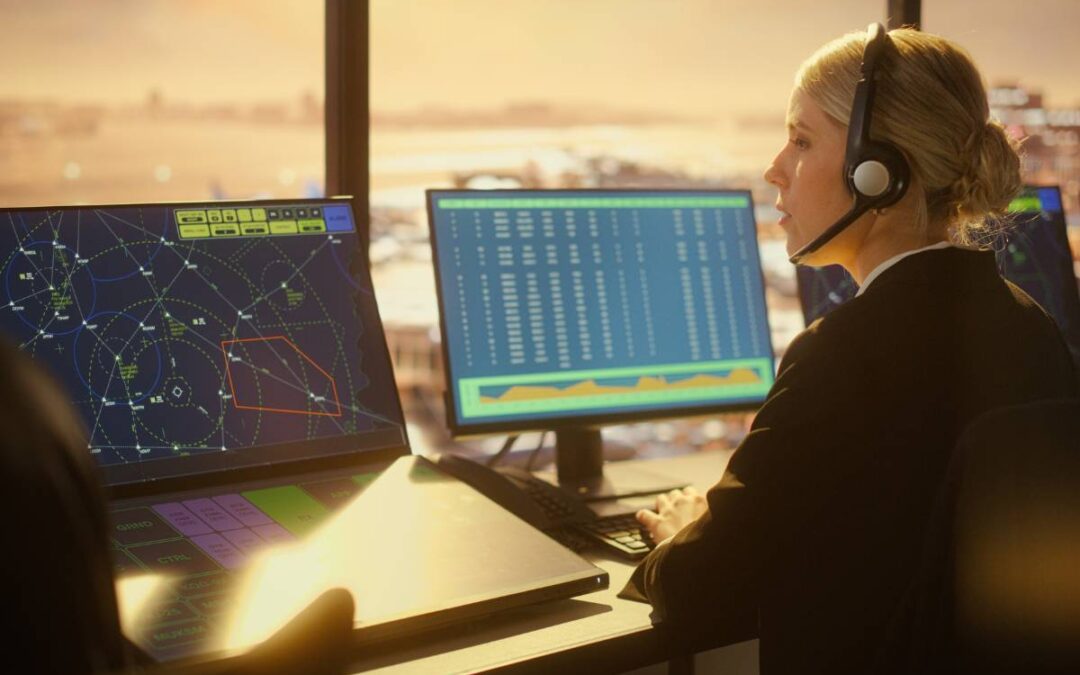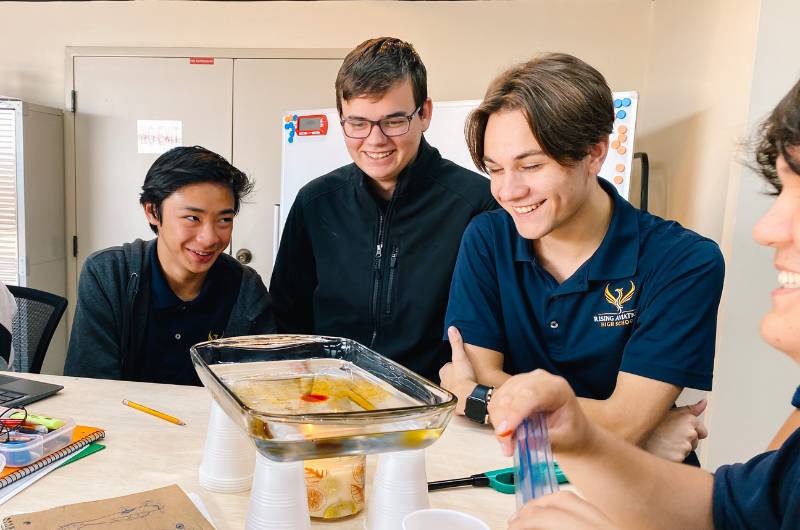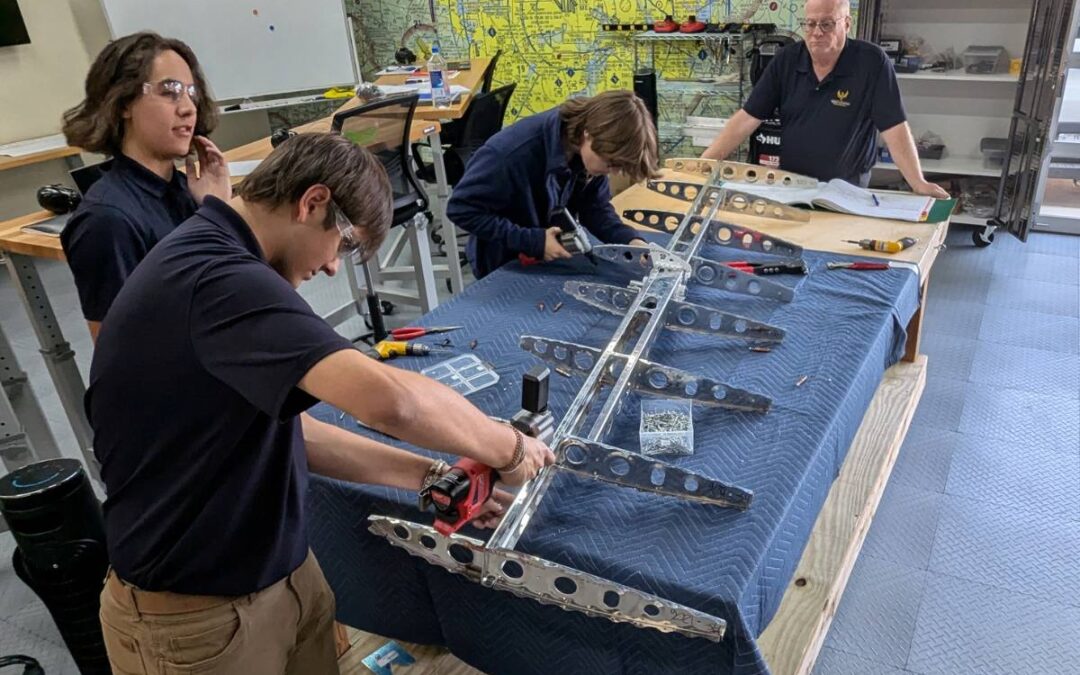Are you interested in working on massive jet engines?
A career as an aircraft mechanic is the perfect path for you!
Aircraft mechanics, also known as aviation maintenance technicians, work on nearly every component of an aircraft.
Aircraft mechanics earn good money, with a median yearly pay of $70,010 in the U.S.
This unique career path can allow you to work on any aircraft, from massive 777 jets to small stunt planes.
To become an aircraft mechanic, you need special training. Many people start with classes at a tech school or community college to prepare them for their airframe and powerplant certificate tests.
Once you pass the exam from the FAA you’ll officially be an aviation maintenance technician.
This field offers many opportunities to grow and learn new skills over time. If you love planes and enjoy hands-on work, this could be a great career for you!
Role And Responsibilities of Aviation Maintenance Technicians
Aircraft mechanics and service technicians play a crucial role in keeping planes safe and airworthy. You’ll be responsible for a wide range of tasks that ensure aircraft are in top condition.
The Primary Duties of an Aircraft Mechanic
As an aircraft mechanic, your main job is to inspect, repair, and maintain aircraft.
You’ll work on various parts of the plane, including engines, landing gear, wings and more. Your duties include:
- Performing routine maintenance checks
- Diagnosing mechanical or electrical problems
- Repairing or replacing faulty components
- Conducting thorough inspections to ensure airworthiness
- Testing aircraft systems and equipment
- Reviewing and troubleshooting issues identified by pilots
You’ll also need to keep detailed records of all the work you do. This helps track maintenance history and ensures compliance with safety regulations.
Day-to-Day Activities And Tasks
Your daily routine as an aircraft mechanic will be diverse and hands-on.
You might start your day by:
- Reviewing maintenance schedules and work orders
- Inspecting aircraft for signs of wear or damage
- Performing scheduled maintenance tasks
Throughout the day, you’ll tackle various jobs like:
- Troubleshooting complex systems using diagnostic tools
- Repairing or replacing aircraft components
- Cleaning and lubricating parts
- Running tests on engines and other systems
You’ll also spend time updating maintenance logs and discussing issues with pilots or other technicians.
Safety is always your top priority, so you’ll need to stay focused and attentive to detail in everything you do.

Required Education And Skills
Becoming an aircraft mechanic requires specific education and skills. You’ll need a mix of technical knowledge, hands-on experience, and certifications to succeed in this field.
Necessary Educational Background And Degrees
To start your career as an aircraft mechanic, you have a few paths to choose from.
Most employers prefer you to have a post-secondary certificate from an FAA-approved aviation maintenance technician school. This program usually takes 12-24 months to complete.
These programs, like the one at our partner school, Thrust Institute of Maintenance, will prepare you to take your airframe and powerplant exams with an FAA examiner.
Some mechanics get an associate’s degree in aviation technology or a related field. This option takes about 2 years and can give you a broader knowledge base.
If you prefer on the job learning you can apprentice under an A&P technician and after a minimum of three years be ready to take your FAA exams.
Key Skills And Qualifications Needed
As an aircraft mechanic, you’ll need a mix of technical and soft skills.Strong problem-solving abilities are crucial, as you’ll often diagnose complex issues.
Key technical skills include:
- Understanding of aircraft systems
- Ability to read and interpret technical manuals
- Knowledge of safety procedures
Important soft skills:
- Attention to detail
- Effective communication
- Physical stamina
You must be at least 18 years old and fluent in English to get FAA certification.
Attending A STEM High School
Attending a STEM high school can give you a head start in your aircraft mechanic career.
These schools often offer advanced classes in math, physics, and engineering that directly relate to aviation technology.
At Rising Aviation High School, you’ll get hands-on experience with tools and technology similar to what you’ll use on the job.
Many STEM high schools also have partnerships with local airports or aviation companies, giving you chances for internships or job shadowing.
In addition to the STEM education our students receive, they are also able to enroll in our aircraft maintenance program that will help them build a solid foundation in aircraft maintenance and prepare them for a career as an aviation maintenance technician.

Career Path And Advancement
Aircraft mechanics have many options to grow their careers. You can move up the ranks or become an expert in a specific area. Let’s explore the typical path and opportunities for advancement.
Typical Career Progression
You usually start as an apprentice (if you didn’t attend a formal program). Here, you learn the basics and get hands-on practice. After gaining experience, you can become a certified mechanic.
To move up, you need your airframe and powerplant FAA certifications. This shows you have the skills to work on planes safely.
With more time and skills, you might become a lead mechanic or supervisor.
Opportunities For Advancement And Specialization
As you grow, you can pick special areas to focus on. You might become an expert in:
- Engines
- Electrical systems
- Avionics
- Helicopter maintenance
These specializations can lead to higher pay and more job options.
You can also move into management. You might become a:
- Team leader
- Maintenance manager
- Inspector
Some mechanics even start their own repair businesses.
Challenges And Rewards
There are many pros and cons to a career as an aviation maintenance technician. This job requires skill, dedication, and a strong work ethic.
Common Challenges Faced In This Career
Working as an aircraft mechanic can be demanding. You’ll often deal with high-pressure situations to ensure aircraft safety.
This means paying close attention to details and following strict rules while trying to meet tight deadlines.
The job can be physically tough too. You might work in tight spaces or uncomfortable positions. And lifting heavy parts is common.
Keeping up with new technology is also crucial in this role. You’ll need to learn about new aircraft systems and tools throughout your career.
Teamwork and communication are key. You’ll work closely with other mechanics, pilots, and managers. Clear communication helps avoid mistakes and keeps everyone safe.
Rewards And Benefits Of Pursuing This Career Path
As an aircraft mechanic, you can enjoy a good salary. The median annual pay is around $70,010 in the U.S. And those who choose to work for major airlines can earn considerably more.
Your skills are in high demand. The aviation industry needs qualified mechanics, so job security is strong.
You’ll have chances to grow in your career. You could become a lead mechanic, inspector, or even move into management roles.
The work is never boring. Each day brings new challenges and problems to solve. You’ll use your critical thinking skills often.
Seeing planes you’ve worked on take flight is very satisfying. You play a key role in keeping air travel safe for everyone.

Future Outlook
The job market for aircraft mechanics and service technicians looks promising. New tech and more air travel are shaping the field’s future. Let’s look at what’s ahead for this career path.
Trends And Future Developments In The Field
New tech is changing how you’ll work on planes. Training methods are shifting to focus on skills, not just tasks.
You’ll need to keep learning as planes get more high-tech.
Electric and hybrid planes are coming. This means new skills for you to learn. Drones and AI might also change your job. You’ll likely work with these new tools.
Safety rules might get stricter. This could mean more careful checks and paperwork for you. But it also means your skills will be even more valued.
Job Market Outlook And Demand
Your career outlook is great one. There is an ongoing shortage of qualified aircraft mechanics and as a result, pay for technicians has been climbing in recent years.
The Bureau of Labor Statistics sees 4% job growth from 2022 to 2032.
While Boeing, in the their latest Pilot and Technician Outlook, predicts that over 700,000 new aviation maintenance technicians will be needed over the next 20 years.
The future is bright for aviation maintenance technicians.
If you’re a teen considering a career as an aircraft mechanic be sure to reach out to Rising Aviation High School to see how our program for high school students could help you prepare.






